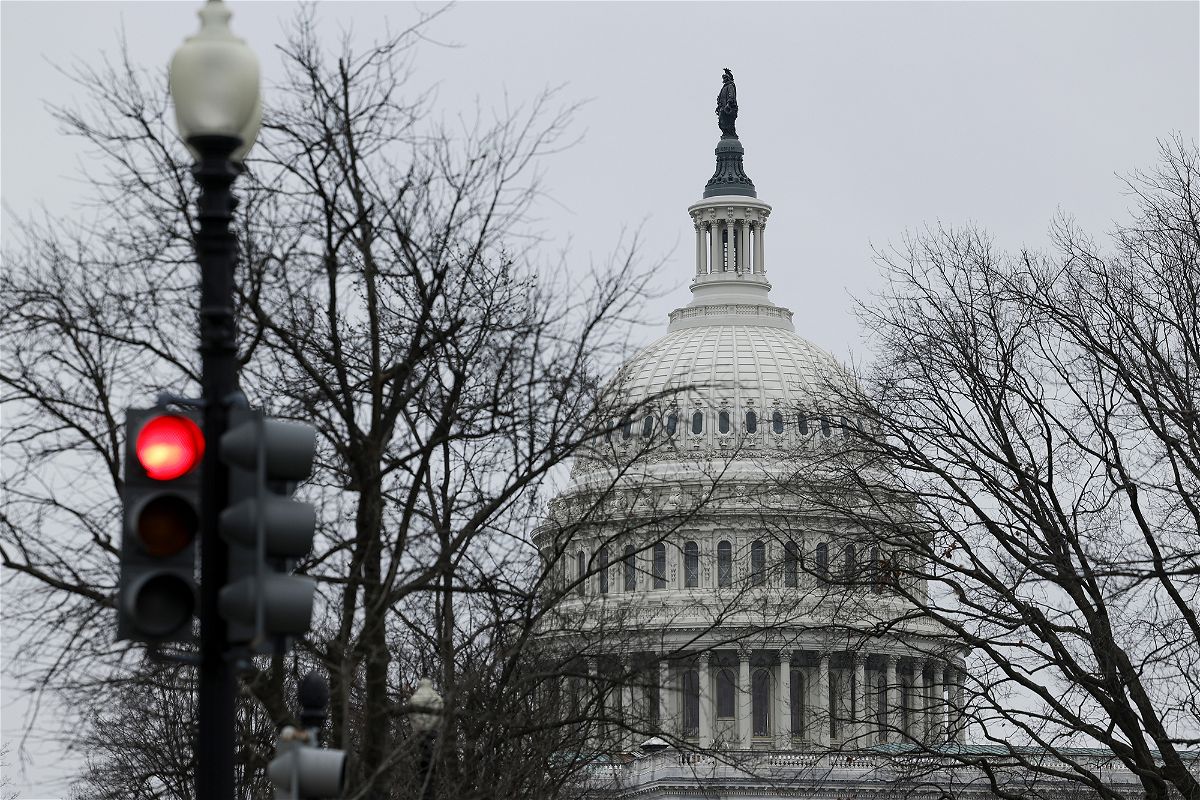Exclusive: Goldman Sachs says even near-default on U.S. debt could spark recession and market chaos

Matt Egan, CNN
A full blown debt ceiling crisis could bring the US economy to a halt, according to Goldman Sachs chief economist.
“If there is any doubt about the ability or willingness of the US government to pay interest and principal on time, it could have very, very adverse consequences,” Ian Hatzius, chief economist at Goldman Sachs, told CNN.
The United States hit its debt ceiling last week, forcing Treasury Secretary Janet Yellen to take accounting maneuvers to avoid breaching the $31 trillion borrowing limit.
If Congress fails to raise the debt ceiling in time, Hatzius said, investors will worry about the possibility of defaulting on U.S. Treasury bonds, “arguably the most important asset in the global economy.”
Unlike many of his Wall Street counterparts, Goldman Sachs is relatively optimistic about the US economy, and Hatzius told CNN that America is likely to avoid a recession before the 2024 presidential election.
However, the debt ceiling crisis is a key risk to this bullish outlook.
When asked if a default, or even close to default, could cause a recession, Hatzius answered in the affirmative.
“The concern is that there will be turmoil in financial markets, a sharp tightening of financial conditions, and this will exacerbate downward pressure on economic activity,” he said. “This is definitely a concern. These are not our expectations.”
Economists and US officials have previously warned of dire consequences if the federal government runs out of emergency measures used to prevent a default.
Yellen told CNN correspondent Christiane Amanpour last week that if Washington fails to make payments, there could be a “global financial crisis.” Economist Mark Zandi once called the actual default “Financial Armageddon.”
“Eventually a solution will be found”
History shows that Congress eventually reaches an agreement to raise the debt ceiling, although there have been close calls in the past. In 2011, S&P Global Ratings downgraded the United States’ ideal credit rating to AAA as lawmakers tried to find a compromise. The episode caused unrest on Wall Street and undermined business confidence.
Leaders on Wall Street and in Washington have warned that these debt ceiling negotiations could be particularly difficult.
The historic dysfunction leading up to the election of Speaker of the House Kevin McCarthy earlier this month showed just how difficult it will be to get the controversial legislation through the House of Representatives. Not only does McCarthy preside over a tiny majority, but he has also agreed to concessions that give the more extreme corners of the Republican Party significant influence.
However, Goldman Sachs expects an agreement on the debt ceiling will eventually be reached.
“We think that eventually a solution will be found,” Hatzius said. “These decisions are often at the very last moment.”
Why Goldman Sachs Says There Will Be No Recession
Assuming the United States survives the debt ceiling episode, Goldman Sachs is optimistic about the outlook for the US economy.
“We don’t expect a recession,” Hatzius said, noting that his firm sees a still significant 35% chance of a recession, compared to the Wall Street consensus of about 65%. “Our baseline is a soft landing.”
Yet a wave of major companies have announced layoffs in recent weeks, including tech giants like Microsoft and Amazon, as well as financial firms like BlackRock and Goldman Sachs itself.
Goldman Sachs expects the red-hot job market to continue to cool, but only gradually. Hatzius doesn’t see the economy losing jobs every month this year, though he said monthly wage growth could dip below 100,000.
Inflation ‘reasonably peaked’
This slowdown, combined with a slowdown in housing construction, the handling of supply chain shocks, and the impact of the war in Ukraine, should help lower inflation without triggering a recession.
Hatzius expects inflation to rise from 9.1% last summer to 2-3% by the end of this year or by 2024.
“I think inflation has clearly peaked,” Hatzius said, adding that he was “relatively highly confident” about the call.
An economist at Goldman Sachs said he predicts US economic growth will continue through the 2024 presidential election, although that is not a correct prediction.
“The further back in time you go … the greater the risk that something bad will hit you along the way and you will actually hit a recession,” Hatzius said. “By the time you get to November 2024, it will be a closer challenge.”
The-CNN-Wire
& © 2023 Cable News Network, Inc., a Warner Bros. Company. discovery. All rights reserved.
Post Exclusive: Goldman Sachs says even a near-default on U.S. debt could trigger a recession, and market chaos first appeared on KION546.
Dallas Press News – Latest News:
Dallas Local News || Fort Worth Local News | Texas State News || Crime and Safety News || National news || Business News || Health News
texasstandard.news contributed to this report.










